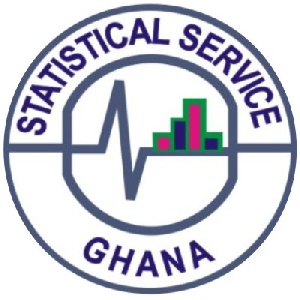 Ghana Statistical Service logo
Ghana Statistical Service logo
A total of 1.2 million children between the ages of four and 17 do not attend school, the 2021 Population and Housing Census (PHC) has revealed.
Out of the number, almost one million (942,427) children have never attended school.
This was contained in a release issued recently by the Ghana Statistical Service (GSS) and copied to the Ghanaian Times in Accra.
The Savannah Region leads with 43.2 percent of children who had never attended school.
According to the GSS, these findings emanated from the 2021 PHC Thematic Brief on Childhood Vulnerabilities in Ghana which presented statistics on children in Ghana focusing on the number and distribution of vulnerable children and the correlates of child vulnerabilities.
“Over a quarter of a million children (275,562) five to 17 years have difficulty in performing activities in at least one of the following domains: sight, hearing, physical (walking or climbing stairs), intellectual (remembering or concentrating), self-care, and speech.
There are 5,976 children in Ghana living without shelter i.e. sleeping outdoors. About two in every five (43.6 percent) of the children without shelter are in the Greater Accra Region, which has the highest share followed by the Ashanti (15.7 percent) and Eastern (5.4 percent) regions,” the release added.
It also said that nationally, 51,081 boys and 79,733 girls aged 12 to 17 years had been married or living together with a partner.
“One out of every five (20.4 percent) children that have ever been in a union is in the Northern Region which has the highest number of children ever in union (26,698),” it added.
The release said that the report further indicated that one-third of the household population under 18 years representing 3,862,259 children were multidimensionally poor.
The regions with the highest numbers, Greater Accra (550,118) and Ashanti (539,048) have more than half a million children each being multidimensionally poor.
The GSS provides comprehensive, reliable, quality, relevant, accurate, and timely statistical information to guide national development as stipulated in Section 3 of the Statistical Service Act, 2019 (Act 1003).
The organisation’s vision is to be a trusted provider of statistical services for good governance and its mission is to lead the efficient collection, production, management, and dissemination of quality official statistics based on international standards, using competent and motivated staff for evidence-based decision-making, in support of national development.
The Statistical Service produces monthly and quarterly data on important economic indicators such as Consumer Price Index (CPI) and Inflation, Producer Price Index (PPI) and Inflation, and Gross Domestic Product (GDP).
GSS also regularly generates periodic population, housing, demographic and economic data at the local, district, and national levels from routine surveys and censuses.
The statistics generated by GSS are utilised by a wide cross-section of users including the public sector, businesses, academia, civil society organisations and development partners.